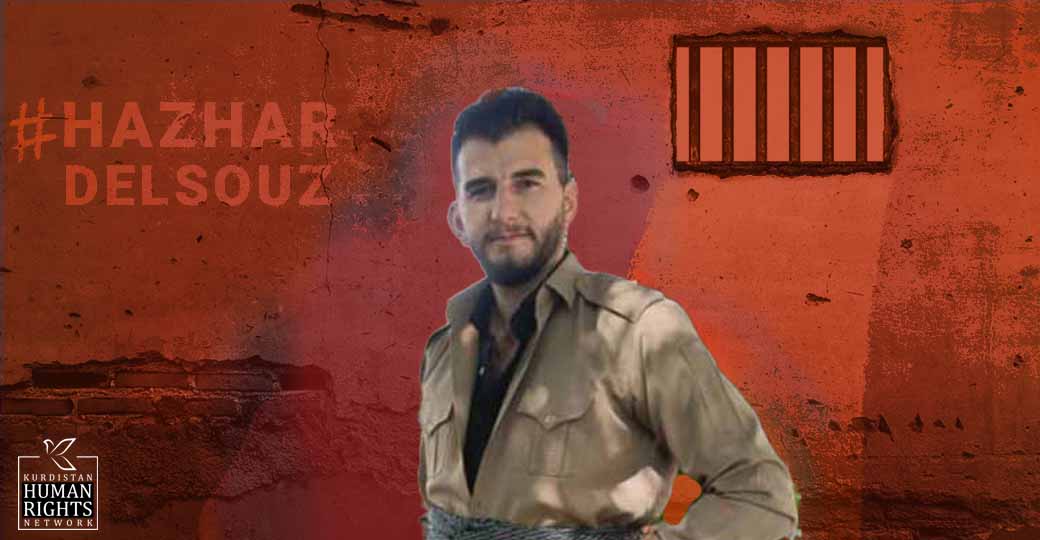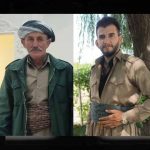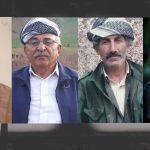Arrest
Hazhar Delsouz was arrested without a warrant by the Ministry of Intelligence in Piranshahr, West Azerbaijan Province, on 5 July 2022, along with Osman Delsouz and Akam Khezrzadeh, and transferred to the Ministry’s detention facility in Orumiyeh, West Azerbaijan Province.
He was provisionally released on bail of 30 billion rials (nearly 60,000 USD) on 29 August 2022, one day after being transferred to Naqadeh Prison.
During his detention, he was denied access to both family visits and legal counsel.
Judicial Process
In May 2024, Branch 102 of the Criminal Court Two in Piranshahr sentenced Delsouz to two years imprisonment on charges of “membership of a group or organisation with the intent to disrupt national security” through membership of the Democratic Party of Iranian Kurdistan (PDKI).
Current Status
Delsouz has been serving his sentence in Naqadeh Prison since 13 July 2024.
Notes:
1. Article 498 of the Islamic Penal Code: “Anyone who, under any pretext or ideology, forms or runs a group, association, or an entity of more than two people, either inside or outside the country, under any name or title, with the aim of disrupting national security, and is not considered a ‘mohareb’ (enemy of God), shall be sentenced to imprisonment for a period of two to ten years.” According to Article 499 of the Islamic Penal Code: “Anyone who joins one of the groups, associations, or branches of the associations mentioned in Article 498 shall be sentenced to imprisonment for a period of three months to five years, unless it is proven that they were unaware of the group’s objectives.”
2. The Democratic Party of Iranian Kurdistan (PDKI) was founded on 16 August 1945, with the aim of gaining autonomy for Iranian Kurdistan. According to the party’s charter, this political organisation, grounded in the “nationalist ideas and organizational structure of the Society for Kurdish Resurrection (KJK) and with a realistic and contemporary approach”, emerged as a modern entity in the political arena. KJK was the founder of the Republic of Kurdistan (22 January 1946 – 15 December 1946) in Mahabad. The republic lasted only 11 months, ending with an attack by the Iranian army, which executed its leaders, including Qazi Muhammad, the party leader and President of Kurdistan.
PDKI went through a period of armed struggle in the late 1960s, marked by internal party disputes, and ultimately, re-emerged as a political party on the eve of the 1979 revolution. Two of its leaders, Abdul Rahman Ghassemlou and Sadegh Sharafkandi, were assassinated by the Islamic Republic of Iran in Europe in 1989 and 1992, respectively. In 2006, due to heightened internal conflicts, the party split into two factions: the Democratic Party of Iranian Kurdistan and the Kurdistan Democratic Party (HDK). These two factions eventually announced their reunification on 22 August 2022, after 15 years of separation.
The party has declared its ultimate goal as “the establishment of a democratic-socialist society” and its strategic slogan as “securing the rights of the Kurdish people in Iranian Kurdistan within the framework of a federal democratic system in Iran”. The main headquarters of the PDKI is in Erbil, Kurdistan Region of Iraq.




